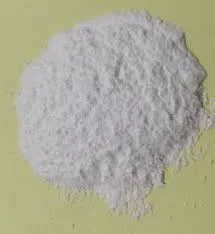- Afrikaans
- Albanian
- Amharic
- Arabic
- Armenian
- Azerbaijani
- Basque
- Belarusian
- Bengali
- Bosnian
- Bulgarian
- Catalan
- Cebuano
- Corsican
- Croatian
- Czech
- Danish
- Dutch
- English
- Esperanto
- Estonian
- Finnish
- French
- Frisian
- Galician
- Georgian
- German
- Greek
- Gujarati
- Haitian Creole
- hausa
- hawaiian
- Hebrew
- Hindi
- Miao
- Hungarian
- Icelandic
- igbo
- Indonesian
- irish
- Italian
- Japanese
- Javanese
- Kannada
- kazakh
- Khmer
- Rwandese
- Korean
- Kurdish
- Kyrgyz
- Lao
- Latin
- Latvian
- Lithuanian
- Luxembourgish
- Macedonian
- Malgashi
- Malay
- Malayalam
- Maltese
- Maori
- Marathi
- Mongolian
- Myanmar
- Nepali
- Norwegian
- Norwegian
- Occitan
- Pashto
- Persian
- Polish
- Portuguese
- Punjabi
- Romanian
- Russian
- Samoan
- Scottish Gaelic
- Serbian
- Sesotho
- Shona
- Sindhi
- Sinhala
- Slovak
- Slovenian
- Somali
- Spanish
- Sundanese
- Swahili
- Swedish
- Tagalog
- Tajik
- Tamil
- Tatar
- Telugu
- Thai
- Turkish
- Turkmen
- Ukrainian
- Urdu
- Uighur
- Uzbek
- Vietnamese
- Welsh
- Bantu
- Yiddish
- Yoruba
- Zulu
نويابىر . 25, 2024 20:32 Back to list
ivermectin injection for sheep
Ivermectin Injection for Sheep An Essential Veterinary Drug
Ivermectin injection is a crucial veterinary pharmaceutical used in sheep farming to manage and prevent various parasitic infections. This broad-spectrum antiparasitic drug, which belongs to the avermectin class, is highly effective against a range of internal and external parasites, including nematodes, arthropods, and ectoparasites. With the increasing complexities of managing flock health, the role of ivermectin in sheep husbandry cannot be overstated.
Mechanism of Action
Ivermectin functions by binding to specific channels in the nerve and muscle cells of parasites. This binding leads to paralysis and subsequent death of the parasites. The mechanism primarily involves the modulation of glutamate-gated chloride channels, which results in increased permeability of the cell membrane to chloride ions. Consequently, the neuromuscular paralysis of the parasites helps control infections in the sheep.
Indications for Use
The primary indications for administering ivermectin through injection in sheep include the treatment of gastrointestinal roundworms, lungworms, and external parasites such as lice and mites. The injectable form is particularly advantageous in cases of severe infestations, where rapid systemic absorption and action are required. Moreover, ivermectin is also effective against some forms of mange, which can severely affect the sheep's health and productivity.
Administration Guidelines
ivermectin injection for sheep

When administrating ivermectin injection to sheep, it's critical to follow the recommended dosages and guidelines provided by veterinarians or established veterinary formulations. Generally, the dosage is based on the sheep's weight, and it is important to ensure accurate dosing to avoid potential side effects or ineffectiveness. Ivermectin can be administered subcutaneously, which allows for optimal absorption and therapeutic effect.
Safety and Efficacy
Ivermectin is renowned for its safety profile when used appropriately. It is generally well-tolerated in sheep, with few side effects associated with its use. However, as with any medication, there is a risk of adverse reactions, especially if animals have pre-existing conditions or if incorrect dosages are administered. Additionally, it is essential for sheep producers to adhere to the recommended withdrawal periods to ensure that ivermectin residues do not exceed safe levels in meat or milk intended for human consumption.
Resistance Management
One of the challenges faced in parasitic control is the development of resistance among parasites to antiparasitic treatments, including ivermectin. Resistance can arise from overuse or underdosing in livestock. To mitigate this risk, farmers should adopt an integrated pest management approach that includes rotating antiparasitic drugs, conducting regular fecal examinations, and maintaining optimal management practices to reduce parasite load.
Conclusion
Ivermectin injection remains a cornerstone in the health management of sheep, aiding farmers in maintaining the productivity and welfare of their flocks. Its broad efficacy against various parasites, coupled with its relative safety profile, makes it an invaluable tool in veterinary medicine. As the agricultural landscape continues to evolve, it is essential for sheep producers to stay informed about best practices in drug use and resistance management to ensure the sustainability of sheep farming and animal health in the long term. Effective use of ivermectin can lead to healthier sheep, improved wool and meat quality, and ultimately a more successful farming operation.
-
Guide to Oxytetracycline Injection
NewsMar.27,2025
-
Guide to Colistin Sulphate
NewsMar.27,2025
-
Gentamicin Sulfate: Uses, Price, And Key Information
NewsMar.27,2025
-
Enrofloxacin Injection: Uses, Price, And Supplier Information
NewsMar.27,2025
-
Dexamethasone Sodium Phosphate Injection: Uses, Price, And Key Information
NewsMar.27,2025
-
Albendazole Tablet: Uses, Dosage, Cost, And Key Information
NewsMar.27,2025













